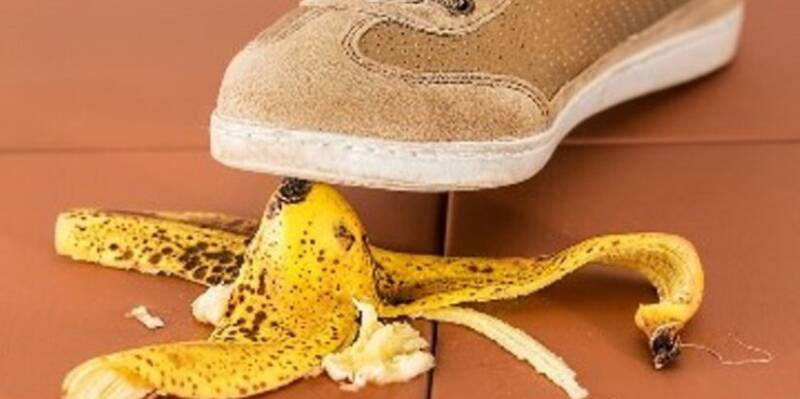
Could you benefit from Causeway Coast and Glens Borough Council’s Home Safety service?
Click on the link: Preventing accidents at home
Could you benefit from guidance and advice to help keep you and your family safe at home?
Causeway Coast and Glens Borough Council’s Home Safety Team wants to remind residents about the range of services that it can offer.
Your home is where accidents are most likely to occur, and the number of incidents has been on the rise as we spend more time at home during the pandemic for work, schooling or childcare reasons.
In Northern Ireland in a typical week, two people die because of home accidents. Alongside this, there are approximately 17,000 admissions to hospital each year due to unintentional injuries.
Although falls are the most common accident cause, other hazards include poisoning, fire and smoke inhalation, strangulation (for example, by blind cords) drowning and choking.
Encouraging residents to avail of the Home Accident Prevention service, the Mayor of Causeway Coast and Glens Borough Council Councillor Richard Holmes said: “Our homes should be our safest spaces, but unfortunately this isn’t always the case and accidents can occur at any time. Everyone should be aware of the dangers and take steps so that injuries can be avoided.
“Council’s Home Safety Officers are here to help so please consider if they could make a difference to you and your loved ones. Households with a child under 5 and older people aged 65 or older can avail of home visits, safety equipment and get important information on a range of support opportunities and grants.
Other vulnerable groups such as those with greater social, economic and health disadvantage are also a priority, so please don’t hesitate to get in touch if you are eligible.”
If you have a child under five, you can access.
- A home safety check and advice.
- Carbon monoxide advice and supply of alarms where appropriate.
- Referral to other agencies such as Northern Ireland Fire and Rescue Service, Energy Efficiency Advice/grants.
In some cases, families can obtain equipment including a fireguard or stairgate, child safety cupboard catches, blind cord safety devices, Anti-tipping TV straps, door jammers and corner cushions. Eligibility depends on receipt of income support, child tax credit, PIP, DLA, JSA, ESA, working tax credit, housing benefit, free school meals or universal credit or in some cases professional judgement based on circumstances such as health or social need.
Those aged over 65 can receive a free home check and advice, with information on grants, energy efficiency and the range of agencies that can provide further assistance, including COAST and Northern Ireland Fire and Rescue Service.
Safety equipment such as non-slip mats, a falls prevention pack, and carbon monoxide alarm are available if needed,
To reinforce the vital message around home safety, Council’s Home Safety Officers can also deliver talks to groups in the community.
People can self-refer to the team, or referrals can be made by partner organisations, such as health visitors, Fire and Rescue Service, Social Services or community and voluntary groups.
For further information contact the Home Safety Officers using the following details:
nick.moffett@causewaycoastandglens.gov.uk 028 2766 0257
simon.green@causewaycoastandglens.gov.uk 028 7776 0302 (Limavady area).
Alternatively you can email environmentalhealth@causewaycoastandglens.gov.uk
Notes
1. Northern Ireland Fire & Rescue Service (NIFRS) has revealed that almost 40% of accidental house fires in the last year occurred in homes where people lived alone.
See Safety Campaigns - 4th October 2021
Northern Ireland is the only place in the United Kingdom to have a Home Accident Prevention Strategy.
2. The ten-year strategy was developed with the aim of minimising injuries and deaths caused by home accidents and putting in place interventions to minimise the risks. It sets the regional policy direction, and delivery requires a coordinated partnership approach by the organisations in Northern Ireland that work to make the home environment safer.
Examples of partners involved in delivering the strategy include the Department of Health, Public Health Agency, Health and Social Care Trusts, Local Councils, Sure Start, Fire & Rescue Service as well as RoSPA.
Statistics show that some groups in society suffer disproportionately from accidents in the home. See https://www.health-ni.gov.uk/articles/home-accident-prevention
Four strategy objectives guide home accident prevention activities in Northern Ireland:
- Empowering people to better understand home safety risks and make safe choices.
- Promoting safer home environments.
- Promoting and facilitating effective training, skills, and knowledge in home accident. prevention
- Improving the evidence base.
Groups which have priority for home safety accident prevention include:
- These include babies and children under 5.
- People over 65.
- Other vulnerable groups such as those with greater social, economic and health disadvantage.
Contact Us
If you would like further information, please contact us